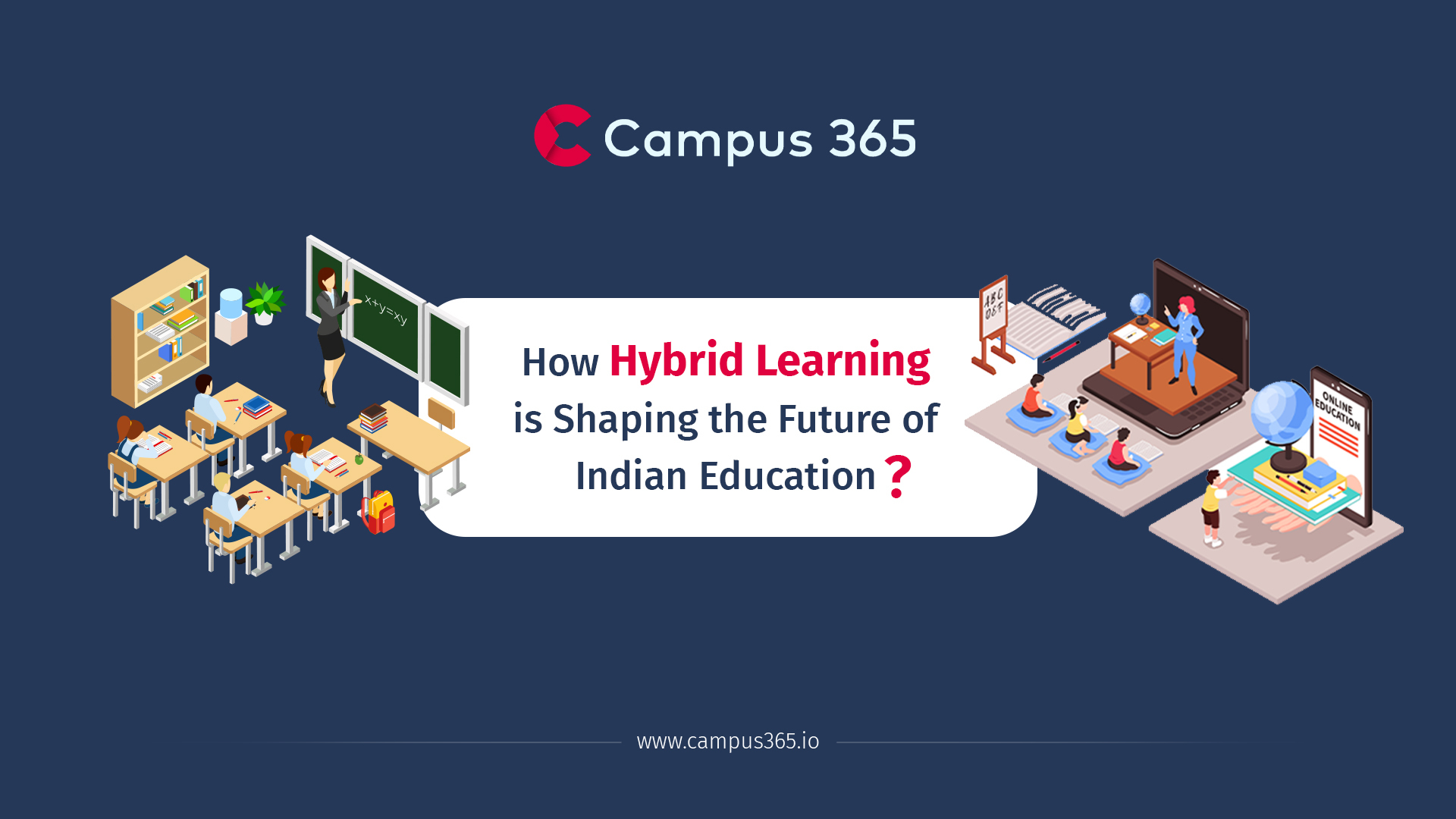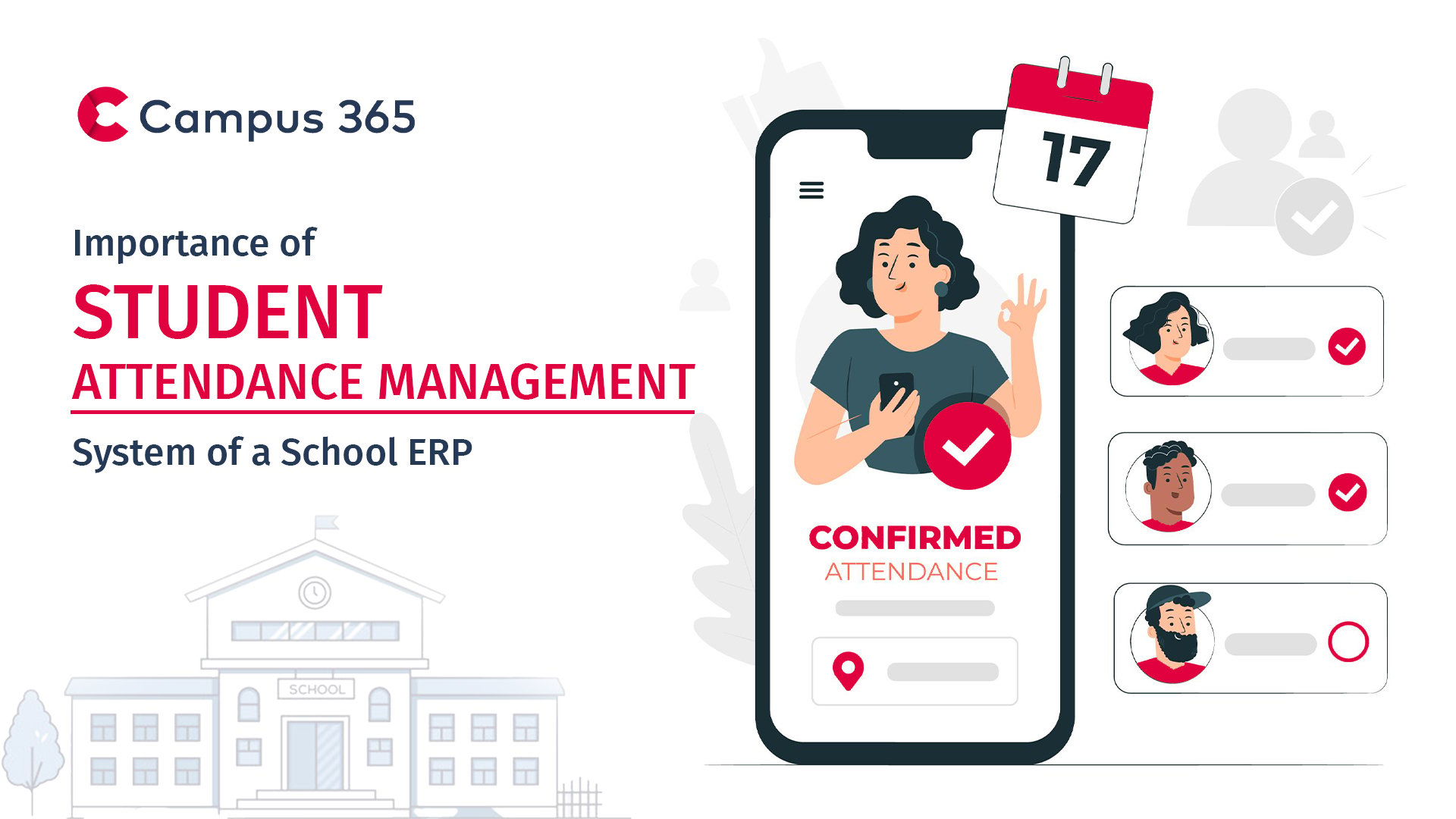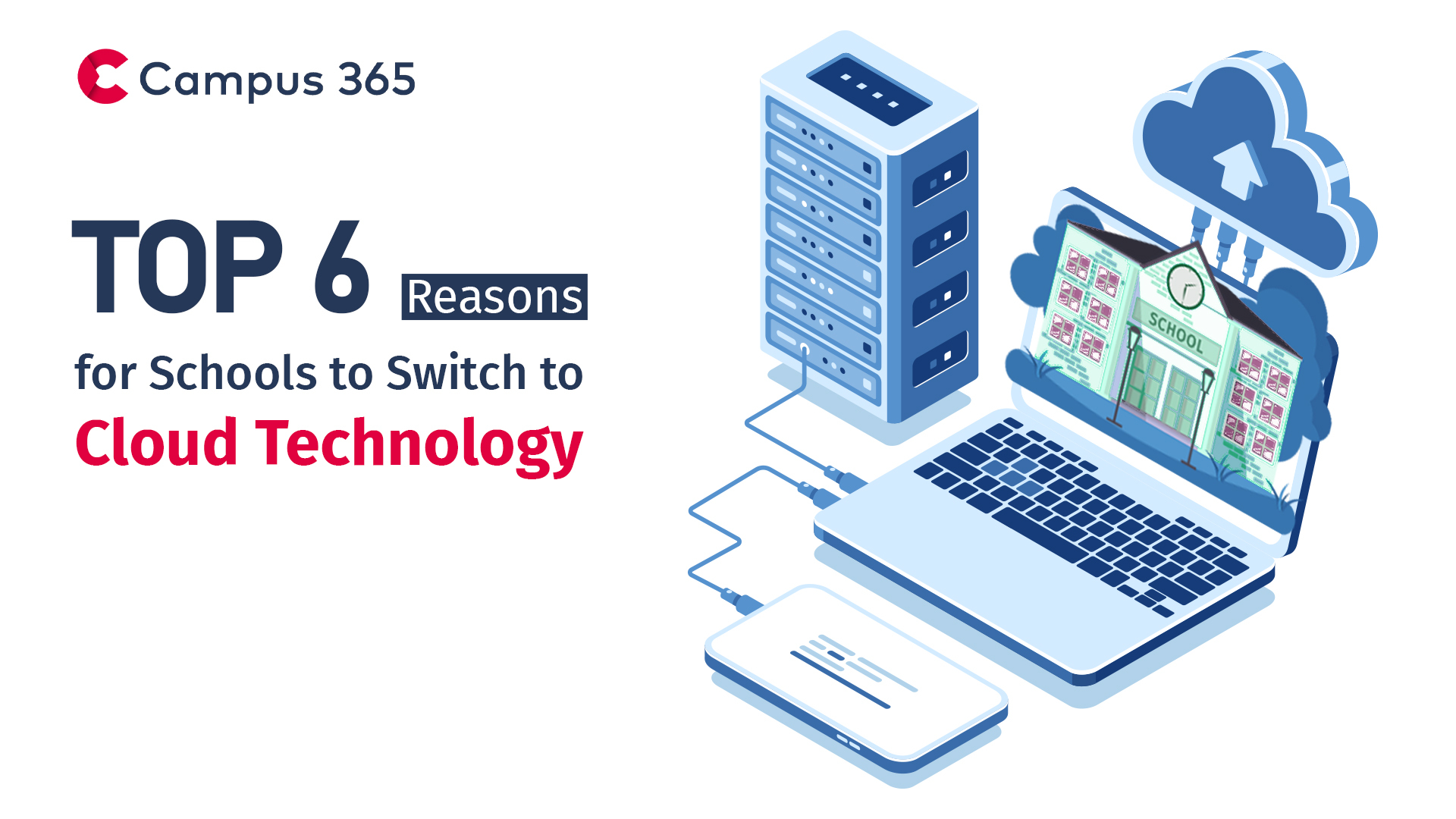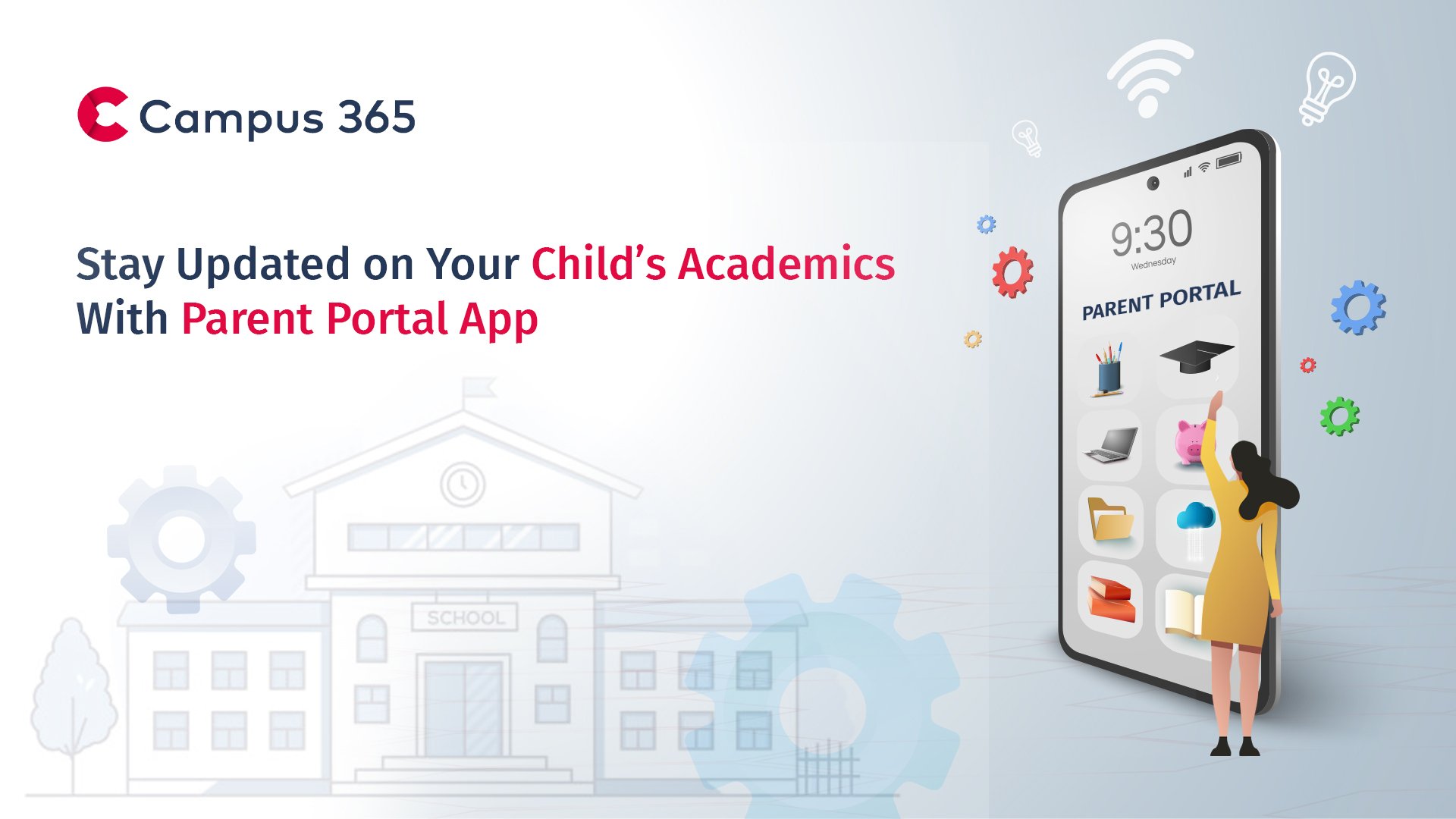The pandemic has tossed the entire face-to-face learning system of schools into disarray all around the world. During COVID-19, extraordinary measures were required, as physical classes in schools were not possible. To solve the obstacles in the education system that occurred during the pandemic, schools had to adopt novel teaching and learning methods which includes the assimilation of technology in education. One of these methods to continue education all around the world was digital learning or online learning where students were attending their regular school classes from their homes.
But now as it is back-to-school season once again, many schools have started conducting offline classes for students, but any increase in cases may result in school closures. In this context, many schools, universities, and educational institutions are turning to the Hybrid Learning model as a solution to the problems and to improve the effectiveness of online learning. School ERP software solution like Campus 365 is proving quite effective in enabling schools to adopt this new learning model.
Understanding Hybrid Learning Model in Education Sector
The word ‘Hybrid’ means something comprising two different elements. Similarly, Hybrid learning is the combination of both face-to-face learning and online education classes. Hybrid learning is an educational approach where some students attend physical classes, while others join the class virtually from home. The teachers impart lessons to both online and offline learning students simultaneously using digital tools like video conferencing. The school ERP solution of Campus 365 exclusively provides a digital platform for educators to conduct seamless online classes for the benefit of students.
In this model, it depends on the students how they want to attend the classes. Online students are provided with online study materials and they can attend the classes from anywhere they wish to.
Why is Hybrid Learning an innovative and effective model for your school?
After the pandemic, hybrid learning has become a buzzword in the Indian education sector. It is a relatively new concept proving to be a successful one with the teachers and students. To begin with, this form of education allows students to be more flexible with their education while also embracing active learning, as their obligations to keep up with the class and materials are increased.
Accessibility is another point to add on, which is the most important feature of adopting a hybrid education model. With the introduction of technology in education sector, classes are becoming more open and accessible to people from all walks of life. Learners can attend their classes regardless of their geographical location.
The reason hybrid classes are an innovative model for our schools as there is the use of technology in education, both software and hardware. Virtual conference calls between students and teachers, teachers using smart screens, and homework completed on smart devices can all be part of the curriculum. Campus 365 school ERP software is actively promoting hybrid learning to provide education to both in-person and online learners to bridge the learning gap.
Benefits of Hybrid Learning approach for Educators and Students
As previously said, hybrid education combines the greatest characteristics of both offline learning and online learning. So, if done properly, hybrid education can result in a learning process that is free of the flaws of the two independent approaches. Here are a few advantages of hybrid education for the schools and educators:
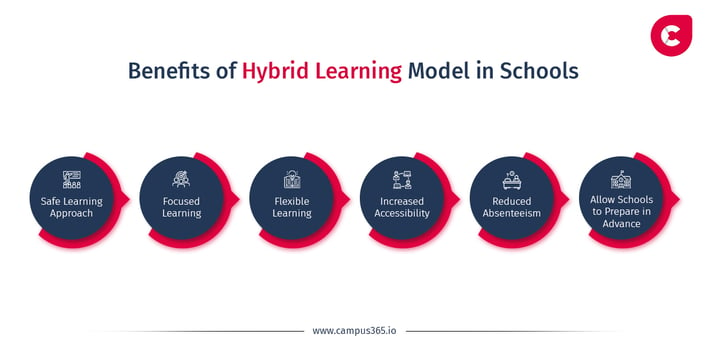
1. A Safe Learning Approach
Students can learn in a safe setting if they complete the majority of their assignments at home and just attend class a few times each week. Schools and colleges can realistically adopt social distancing and guarantee that common facilities are clean and disinfected between offline classes with fewer students present at a time. This way, hybrid classes will stabilize the education process ensuring safety for both educators and students.
2. Promotes Focused learning
Teachers will be able to better focus on each student's needs and learning goals because they would only be in class with half of their classmates at a time. Teachers can focus more on students’ strengths and weaknesses and can work on them accordingly.
3. Flexibility in Learning
Many schools are switching to hybrid learning because it provides more flexibility to both teachers and students. Flexibility can be in learning schedules, in teaching modes, and more flexibility in collaboration between peers and instructors. Students who are unable to attend classes in person can learn remotely from home using the hybrid learning environment.
4. Increased Accessibility
With its plethora of online learning modules, hybrid learning has the potential to alter access to education for many ambitious students. Students from all across the world, in all time zones, can learn together - without the difficulties of physical relocation. Campus 365 school ERP offers the benefit of digital learning to schools with which learners can attend classes from anywhere in the world.
5. Reduced Absenteeism
In a hybrid learning approach, if a student cannot attend physical learning classes, he can still attend online education classes rather than completely missing them. School ERP software solutions like Campus 365 can also record the learning sessions and then post them on their app, where they can be accessed anytime by the students.
6. Allows Schools to Prepare in Advance
As the education system is moving to the hybrid approach, the schools will be better prepared in case there is another break of the pandemic wave. Schools can give fully online classes once again to the students using a hybrid learning architecture until it is safe for students and staff to return to campus for physical learning. School ERP software like Campus 365 assists schools in implementing digital learning mode without any hassle.
The Next Steps
In the current era of digitization, as EdTech and educational methodologies continue to expand and transform, there is no denying fact that learning through hybrid classes will become a part of a holistic education approach. Campus 365, a comprehensive school ERP software, is now proving a boon to schools in adopting a hybrid learning model at an accelerated rate. It offers customized solutions for integrating technology into the classroom. These days it is getting increasingly necessary for schools to implement effective school ERP on their premises to promote an interactive learning environment beyond classroom walls and create a hybrid learning environment that is vital for schools around the world.

